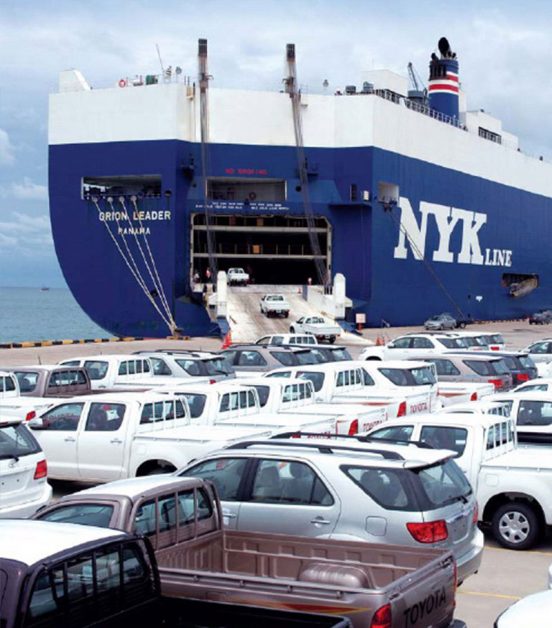[vc_row][vc_column][vc_column_text]
Coastal movement of cars is gaining momentum in India. After a successful pilot shipment of 800 cars to Pipavav in Gujarat, Hyundai Motor India, Ford, Renault and Nissan have shipped around 1,600 units to the north Indian market through sea. The four carmakers loaded the cars into a vessel which set sail on Saturday.
Industry representatives say it would save around Rs 1,500 a car and help the companies to send more vehicles to cater to demands in the upcoming festive season and also mitigate risks of depending on road transport alone.
There will be a return cargo, from Kandla port to Kamarajar Port (earlier Ennore Port) and Cochin Port, carrying cars from Ford and Honda facilities in north India, said a senior official from Kamarajar port.
V Anand, senior general manager, sales and logistics, Hyundai Motor India, said this is the first time the company was working with a third-party logistics player, Sical, who has tied up with other OEMs (original equipment manufacturers) to increase the size of the cargo to make the shipment route viable. Coastal shipping offers key advantages — it is cost-effective, environment friendly and helps reduce road traffic congestion that peaks during the festival season, Anand said.
This is also the first time that the transshipment is being undertaken — the cargo will be first discharged at Cochin Port for the Kerala market and then at Kandla port for Gujarat and the National Capital Region (NCR). The cars will be ferried by trailers to NCR.
Anand agreed this would increase the shipping duration. For instance, shipping by road to Gujarat takes around six-seven days as against 10-12 days by sea. It could be a disadvantage, although it remains a good option if the customer is willing to wait a little longer.
He also noted that availability of trailers was becoming increasingly challenging.
Sical has tied up with Kamarajar Port for this pilot project and also with other auto OEMs both in the north and south for a two-way cargo movement. Ennore and Kandla ports have reduced wharfage to Rs 500 per car as compared to Rs 1,600 earlier for cars up to 1600cc.
Kamarajar Port is offering a 75 per cent discount on port charges, as part of supporting the coastal shipping programme, said M A Bhaskarachar, chairman-cum-MD, Kamarajar Port.
It has the facility to hold up to 15,000 cars at a time. It will also add one more berth, so that two berths will be available for shipment of cars.
“For Kamarajar Port, we get our port charges as a new business, including the car holding charges. But we are giving huge discounts to promote this in the interest of the nation,” he said. “If I handle a foreign vessel, I will get four times more than this, but we want to encourage coastal shipping in the interest of the nation,” he added.
An official from an automobile maker has asked the government to consider standarisation of charges across the ports, which will boost coastal shipping further. He also said while reports have said that the government is giving up to 80 per cent concession for coastal movement, many of the ports had not received the communication so they continue to offer 60 per cent.
For coastal shipping to become sustainable, return cargo is the key. To address this, Sical has entered into agreements with some companies for general cargo including steel, automobiles, etc. with four-wheeler makers, who have facilities in north.
The logistics provider is planning three voyages a month. These vessels can accommodate up to 3,500 cars.
[/vc_column_text][/vc_column][/vc_row]







